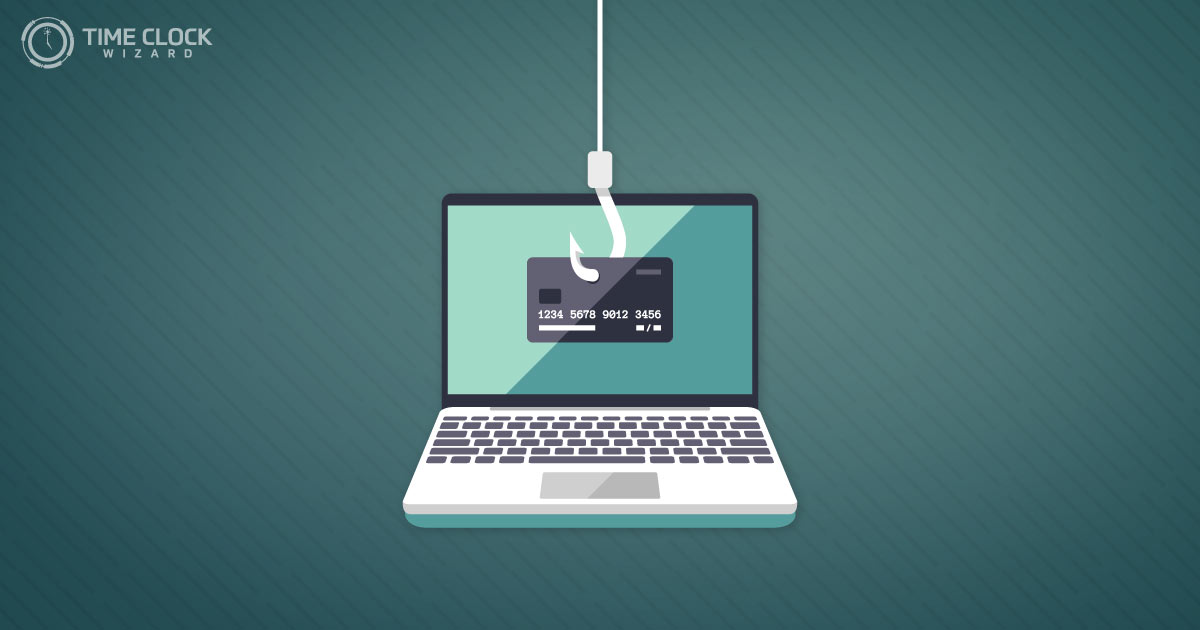
Are you an entrepreneur gearing up to launch your dream venture in 2024? Securing the right financing is crucial, and exploring the best loan options for startups can be a game-changer. With a variety of lending solutions available, choosing the one that fits perfectly with your business needs and goals is essential. 🚀
In this guide, we delve into the top 7 loan options for startups that are set to make a mark in 2024. Whether you’re looking for low-interest rates, flexible repayment terms, or a provider that understands the unique challenges of a startup, we’ve got you covered. Ready to find out which loan could propel your business to the heights of success?
Understanding Key Loan Types for New Entrepreneurs
As a new entrepreneur gearing up for 2024, understanding the array of loan options available can truly set the stage for your business’s success. Are you familiar with the most beneficial types of loans tailored specifically for startups like yours?
Startup loans vary greatly in terms of requirements, benefits, and purposes. Let’s delve into some key loan types that are especially useful for emerging businesses. Knowing which loan suits your business needs can make all the difference in navigating the financial challenges of a startup journey.
Essential Loan Types for Startups
- Term Loans: Ideal for long-term financing needs, perfect for purchasing equipment or funding specific expansion projects.
- Lines of Credit: Offers flexibility by providing access to funds when needed, useful for managing cash flow and unexpected expenses.
- Equipment Financing: Tailored for purchasing new equipment, which acts as collateral for the loan—great for manufacturing or tech-focused startups.
Each type of loan serves a distinct purpose and choosing the right one depends on your startup’s specific financial situation and goals. Have you considered how these options could fit into your broader financial strategy? Engaging with financial advisors or conducting thorough research can help you make informed decisions that propel your business forward.

Securing SBA Loans: A Comprehensive Guide for Startups
Navigating the waters of securing an SBA loan can seem daunting, but it’s a brilliant option for startups looking to inject some robust financial backing into their ventures. Why are SBA loans so attractive for startups, you might ask? Well, they not only offer lower interest rates and longer repayment terms but also come with the stamp of approval and support from the U.S. Small Business Administration.
To start your journey towards securing an SBA loan, it’s essential to understand the eligibility requirements. Does your startup meet the size standards of an SBA-approved small business? Moreover, having a solid business plan and a good credit score can significantly enhance your chances. It’s not just about convincing yourself that your business can succeed, you also need to convince the lenders by presenting a clear and detailed business strategy.
Step-by-Step Application Process for SBA Loans
- Ensure your business meets the SBA size standards.
- Gather detailed financial statements and a strong business plan.
- Find an SBA-approved lender and submit your application.
- Follow through with potential interviews and provide additional documentation as requested.
Once your application is submitted, the waiting game begins. While SBA loan processing times can vary, being prepared with all the right documents can expedite the process. Have you checked if all your financial statements are up-to-date? Remember, securing an SBA loan might be a meticulous process, but the benefits for your startup can be enormously rewarding.
Exploring Unsecured Business Loans for 2024 Startups
Unsecured business loans are an attractive option for startups, primarily due to their lack of collateral requirements. But what sets them apart as a viable financial solution in 2024? These loans offer a way to secure funding without putting your personal or business assets at risk, making them a go-to choice for entrepreneurs wary of risking their hard-earned resources.
For startups, accessing capital can be particularly challenging. Have you ever wondered how unsecured business loans might fit into your financial plans for launching a startup next year? These loans typically have a simplified approval process compared to secured loans. Their focus mainly on credit scores and business potential makes them highly accessible. However, it’s crucial to bear in finance rates, which can be higher than secured loans due to the increased risk lenders take on.
The flexibility of unsecured business loans provides startups with the necessary financial breathing room to navigate the challenging early stages of business. Whether it’s for purchasing inventory, funding marketing campaigns, or covering operational costs, these loans offer a buffer that can help your startup grow without the immediate pressure of securing physical assets as loan security.
So, why should startups consider unsecured business loans in 2024? With the economic landscape constantly evolving, having a financial strategy that includes Loan Options for Startups like these could mean the difference between treading water and sailing smoothly towards business success. 🚀 Ready to explore how these loans can help set the stage for your entrepreneurial venture?

Venture Capital vs. Business Loans: Which is Best for You?
Deciding between venture capital and business loans is a pivotal choice for entrepreneurs. Each funding route offers distinct advantages depending on your startup’s stage, sector, and financial health. But, how do you determine which is the right path for your venture?
Venture capital is an excellent option for startups that have a potentially disruptive business model but may lack the tangible assets or steady cash flow needed to secure traditional loans. Investors not only provide funds but often bring invaluable guidance and resources. However, they do expect significant returns, and you’ll likely need to part with a portion of your company’s equity.
On the other hand, business loans are generally more structured in their repayment terms, which could be seen as a downside—or an upside if you’re looking for predictability and want to retain full control of your business. With a range of loan options for startups, you can find tailored solutions like SBA loans, which are designed specifically to assist new and growing businesses.
So, which financial tool is best for your startup? The answer largely depends on your specific needs and long-term business goals. Are you ready to give up some equity in exchange for a substantial capital boost and strategic partnerships, or would you prefer a more traditional path with fixed repayment structures? Understanding your business’s unique requirements will guide you to the right choice.
Boost Your Startup with Microfinancing Options
Are you a startup owner looking to kickstart your business but concerned about the financial hurdles? Microfinancing might just be the lifeline you need! This alternative loan option provides smaller loan amounts that are perfect for startups and small businesses, which may not qualify for larger, traditional loans.
Microfinancing is incredibly beneficial for entrepreneurs who are just stepping into the challenging world of business. With quick processing times and less stringent eligibility criteria, it provides an accessible pathway to gain financial support without the traditional complexities. So, what’s stopping you from exploring this option?
- Flexible loan amounts that suit small-scale needs
- Lower interest rates compared to conventional business loans
- Minimal paperwork and fast approval process
Furthermore, microfinancing institutions often offer not just financial aid but also advisory services to help your startup flourish. They understand the nuances of running a small business and provide tailored advice that is invaluable for new entrepreneurs. 🌱
By considering microfinancing as one of your top loan options for startups in 2024, you are not only securing financial support but also aligning with a partner that is invested in your success. Start planning your application today!
Common Questions
Which loan is best for a startup business?
The best loan for a startup business often depends on several factors including the size of the loan, the age of the business, and the owner’s credit score. Generally, SBA loans are considered a good option because they offer relatively low interest rates and long repayment terms, which are beneficial for new businesses that need time to grow. Microloans and business lines of credit are also popular among startups because they offer more flexible borrowing options. Startups should also consider alternative lending sources such as fintech companies that may have more lenient approval criteria compared to traditional banks.
Is it possible to get a loan for a start up business?
Yes, it is possible to get a loan for a startup business, though it can be more challenging compared to obtaining financing for an established business. Startups are generally considered high-risk because they lack a proven track record of profitability. However, there are specific loan programs designed to meet the needs of startups, such as SBA microlocompans, which can provide smaller loan amounts. Other sources include business lines of credit, personal loans used for business purposes, crowdfunding, and angel investors or venture capital, especially if traditional bank loans are hard to secure.
What type of funding is best for startups?
The best type of funding for a startup varies based on the business model, industry, and specific needs of the business. Bootstrapping, or self-funding, is often recommended as it allows the owners to retain full control over the company. Venture capital is suitable for startups with high growth potential, typically in technology or scalable market sectors. Angel investors can provide not only funding but also valuable mentorship. Crowdfunding is a great option to validate the product by engaging potential customers. Finally, business grants and accelerator programs offer funding without the need for repayment, making them highly attractive, albeit competitive.
Do startups take out loans?
Yes, startups do take out loans, although securing them can be a challenge due to the perceived risk associated with new enterprises. Startups might turn to a variety of loan types including microloans, business credit lines, and personal loans. Specialized government-backed loans, particularly SBA loans, are designed to reduce the risk for lenders and make capital more accessible to startups. Additionally, some startups may also explore alternative lending platforms where criteria might be less stringent compared to traditional banks. It’s important for startups to consider their financial stability and the feasibility of repayment before pursuing a loan.
Government Grants and Funds for Startups in 2024
Navigating the financial challenges of launching a startup in 2024? Have you considered exploring government grants and funds specifically designed for startups? Unlike traditional loans, these funds often come with the advantage of not requiring repayment, provided you meet certain conditions—a massive boost for any burgeoning entrepreneur.
Government grants for startups are designed to foster innovation, support job creation, and bolster economic growth, aiming to provide startups with the foundational support they need without the burden of interest rates and stringent repayment terms. From federal to state level, various programs are tailored to support different sectors and developmental stages of a business. Exciting, isn’t it?
How to Access Government Grants?
Applying for these grants might seem daunting, but it’s a straightforward process. Start by identifying the specific grant programs that align with your startup’s industry and objectives. Websites like Grants.gov offer comprehensive listings. Next, ensure your business plan is robust and reflects your growth strategy and financial needs. Lastly, pay close attention to the grant application deadlines and required documentation to increase your chances of success.
Are You Eligible?
Eligibility often hinges on certain conditions such as industry, location, and the developmental stage of your startup. Additionally, some funds might prioritize minority-owned or veteran-owned businesses. It’s crucial to thoroughly review the eligibility requirements of each grant opportunity to determine if it aligns with your startup’s profile. Remember, the accuracy and comprehensiveness of your application are key to securing these funds.
Not only can these grants make a substantial difference in your business journey by easing financial constraints, but they can also provide a network of support and resources to help your startup thrive. Why not leverage these opportunities to give your business the best possible start?
Wrapping Up: Top 7 Loan Options for Startups in 2024
Now that we’ve explored the various loan options for startups, are you feeling more confident about financing your business venture in 2024? Choosing the right funding can be a game-changer for your startup, and with options ranging from SBA loans to unsecured business loans, there’s something suitable for every entrepreneur’s needs.
Remember, the best loan option depends on your specific business needs, financial situation, and long-term goals. Don’t rush your decision; take the time to explore each possibility thoroughly. And, have you thought about combining different financial options for an optimized funding strategy? Dive into the possibilities, and set your business up for success!





